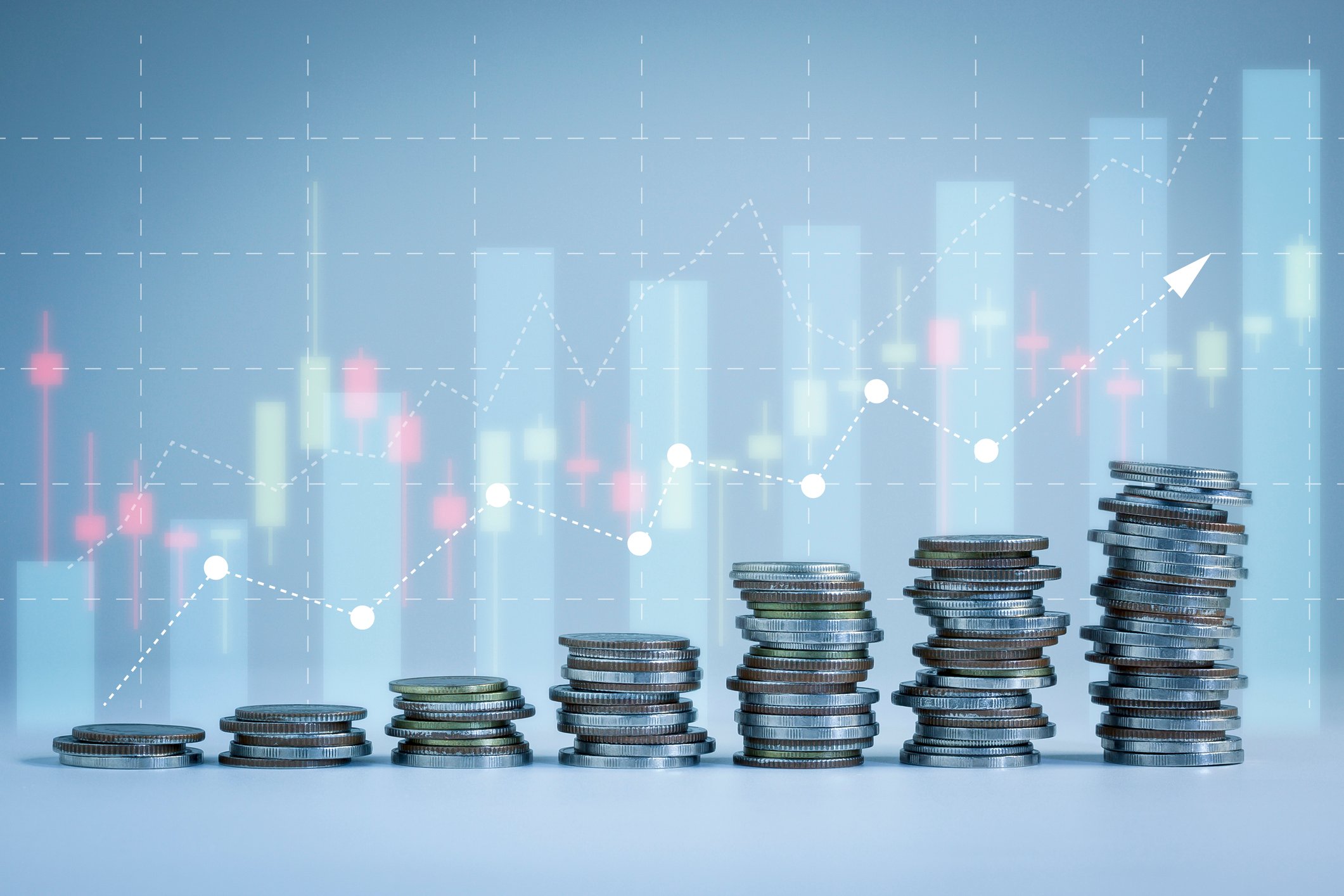The Bakken shale will not go quietly. That's what we've begun to gather, at least in terms of the news cycle. Hess Corp. (HES +0.00%) continued a trend of producers shedding noncore assets to build up liquidity. Hess, though, might have done so in one of the more shareholder-friendly ways by creating a joint venture with its Bakken-area midstream assets.
Also out of the Bakken, the spread between oil prices in the region and those earmarked as West Texas Intermediate (the U.S. benchmark) has narrowed to a range not seen in some time. What gives? Take a listen as we dive into the details.
And, in case you missed it, the United States has surpassed Russia and Saudi Arabia as the top oil producer in the world. It seems that we simply can't stop increasing our production. Is this a good or bad thing over the long term? Only our analysts (think they) know for sure.
A full transcript follows the video.
Sean O'Reilly: We're talking about the Bakken, on this energy edition of Industry Focus.
Greetings, Fools! I'm Sean O'Reilly joining you here from Fool headquarters in Alexandria, Virginia. To my left is the incomparable Taylor Muckerman. How are you today, sir?
Taylor Muckerman: I'm all right.
O'Reilly: Did I say Bakken right?
Muckerman: Well, I say "back-in'" you say "bach-in." Whatever.
O'Reilly: It's like "I'll be back."
Muckerman: We'll leave it to the listeners to determine who's right, and who's wrong.
O'Reilly: It's spelled B-A-K-K-E-N. It's not exactly phonetically spelled correctly. Anyway, in our continuation of our conversation last week, where we saw energy and production companies raising cash by monetizing midstream assets -- in that case it was a pipeline... Hess -- Amerada Hess just announced that it is selling a 50% interest in their Bakken midstream assets for $2.675 billion. I'm very curious what they're going to do with this money, but first and foremost; what can you tell me about this? What do you think? Is it worth it?
Muckerman: Well, Hess has been trying to sell a lot of its midstream assets. They sold off most of their midstream assets a couple years ago, right around the same time that oil was doing really well. They wanted to concentrate on producing oil because that's where the money was at the time.
O'Reilly: Apparently they're going all in on oil now.
Muckerman: Yeah. It's only a 50% interest, but they're selling it as a joint venture. Unlike the deal we talked about last week...
O'Reilly: Where they're just getting rid of their pipeline.
Muckerman: Just getting rid of -- yeah. Enterprise Partners (EPD +0.25%) took the entire pipeline. This one, they're still keeping some kind of exposure to that. One day they're going to shoot for an IPO with this joint venture. So, there's still money to be made for Hess, but they're raising about $3 billion if you include all the debt issuances of the JV and the money that they're being paid. You said it was $2.675 billion.
That's a lot of assets. They already had a strong balance sheet compared to peers. Now they're looking really good. They plan on keeping the balance sheets strong, and now they have options to go out if oil decides to keep climbing like it has been over the last week or so. If we see an uptrend, they have a lot of money where they can go ahead and get some new wells going, maybe get some new lease holds. One thing they did hint at was some disciplined buybacks of shares.
O'Reilly: Yeah.
Muckerman: Which makes sense. The prices of all these companies -- Hess included -- have taken a pretty dramatic hit. The market seems to like it. They're up today, 7%.
O'Reilly: Just for our listeners that aren't fully aware: Midstream activity is basically our processing, storing, transporting, and marketing of oil, natural gas, and natural gas liquids. How does this factor in with Kinder Morgan (KMI +0.47%)? They were bringing their processing partnerships back in. What's with the divergence here?
Muckerman: What you're seeing is Kinder Morgan just got too big.
O'Reilly: It was just too much to manage separately?
Muckerman: It made financial sense. They weren't seeing the returns necessary on the individual business units to keep these partnerships out there because they'd need a higher cost of capital. They have a higher cost of capital, so they need higher returns. They decided they were going to bring it all under one roof.
They can now attack much larger projects that they see might have better returns. Whereas this is going to be a fairly small company. Although it will be one of -- if not the largest -- midstream operators in the Bakken region.
O'Reilly: Awesome. This is definitely not a small...
Muckerman: Regionally it's big.
O'Reilly: Right.
Muckerman: But nationwide this is going to be a pretty small midstream operation.
O'Reilly: Got it. Very cool. Moving on, still talking about this particular shale region: more evidence of a slowdown in production? We keep hearing about it.
Muckerman: Yeah, it's this mystery, voodoo magic going on that no one really knows is happening.
O'Reilly: We see the recount going down, but where's the production?
Muckerman: Yeah.
O'Reilly: I don't know. First and foremost, Taylor: What is the Bakken oil discount?
Muckerman: That is basically -- international prices are usually quoted in Brent prices, which is North Sea oil. U.S. prices are usually quoted at West Texas Intermediate -- which is WTI.
O'Reilly: Which is usually $6 less than Brent?
Muckerman: It's been fluctuating a lot in the past couple of years. I don't really want to pinpoint anything unusual here.
O'Reilly: Fair enough.
Muckerman: But it is typically at a discount to Brent. That's in Cushing, Oklahoma. That's where most of the storage in the United States is. Bakken sells at a discount because it's further away from the Gulf Coast refineries, it's further away from the midcontinent refiners, and for a while there you didn't have a lot of these midstream assets to transport the oil. That's why it has been selling at a discount historically. I think $7.50 cheaper just a few months back.
O'Reilly: Bakken's up in Montana, North Dakota; all that stuff.
Muckerman: A little bit into Canada. We're talking specifically about U.S. Bakken right now.
O'Reilly: Right. So, because it's so far north in tropical North Dakota...
Muckerman: Yeah, the warm tundra.
O'Reilly: It just costs money...
Muckerman: The man camps.
O'Reilly: It costs money to transport it down to the refineries.
Muckerman: Yeah, and they didn't have the infrastructure set up. So they had to go build it. There was a lot of potential, but there wasn't much oil coming -- they knew that once they got production of these infrastructure assets online it wasn't going to be a slowdown in the supply. They had enough supply to meet any infrastructure demand that they could set up.
So, because of that there was this bottleneck creating -- which is why you typically have seen WTI be at a discount to Brent because when U.S. production started surging, Cushing, Oklahoma, wasn't set up to transport the oil to the Gulf; but you've seen the lower leg of the Keystone XL came online and the gap started to close.
O'Reilly: So, the discount's going away. Why does that not mean that the transportation is finally there -- the infrastructure is finally there?
Muckerman: The gap is closing and they're wondering -- now that the infrastructure has caught up with what's capable of being produced there -- they're wondering if now that not as much is being produced, there's excess capacity here. Oil's free-flowing, the companies aren't waiting to get their oil to the pipeline, or onto a rail.
There's actually a slowdown in rail shipments last month. So you're seeing some excess capacity here. That's why you're seeing this close the gap and refiners are sucking this crude up right now.
O'Reilly: So the demand is ticking up a bit?
Muckerman: Right. In the midcontinent it's cheaper. Summer gas demand goes up, so they're really ramping up to produce a lot of that fuel for consumers. Why wouldn't you want to take advantage of cheap oil right now? Who knows if it's going to go back up in the summer, or in the winter when you have heating demand?
I think the refiners are really starting to take advantage of this. Who knows how much longer it's going to last? As you would imagine, cheap oil is good for a refiner because it's an input cost, right?
O'Reilly: Right. Yeah, we keep hearing about China filling up their strategic petroleum reserve.
Muckerman: Exactly. Yeah.
O'Reilly: So, everybody's soaking it up.
Muckerman: Then traders are filling tankers up on oceans.
O'Reilly: Yeah, we've got stuff just floating offseas.
Muckerman: Just hanging out there, floating. Which is why we see tanker rates at a pretty good level right now, even though we're not seeing an increased amount of shipments globally, but these ships are being chartered to just sit there and anchor out, and hold a boatful of oil.
O'Reilly: Could you imagine being one of those traders? "Yeah, I got this huge barge sitting off the coast. It's full of oil. I don't know what to do with it."
Muckerman: I don't know. An interesting side note: I was reading a while back about a guy who's distilling whiskey in barrels on a boat because he thinks that the motion of the ocean is going to add a unique flavor to it by the constant shifting...
O'Reilly: That is the one thing mankind has not tried. To mix it up with whiskey.
Muckerman: Maritime whiskey.
O'Reilly: Oh, man. Is that what it's going to be called?
Muckerman: I don't know. That's what I would call it.
O'Reilly: Great brand. You should trademark that. Last but not least: I did want to touch upon this -- because we were just talking about a huge surge in U.S. production that we've seen. Basically, since the depths of the recession. We're no longer the United States of America. We're kind of the United States of Oil. We've surpassed Russia, and Saudi Arabia in oil production. We did it so fast, too.
Muckerman: Yeah. We didn't take our time with it. Which is probably why we're seeing $50- and $60-a-barrel oil right now.
O'Reilly: Oops.
Muckerman: Typical America, right?
O'Reilly: It's like that old adage, "The cure for high prices is high prices; and the cure for low prices is low prices."
Muckerman: Yeah. A lot of people have been predicting this for a while, but it's finally here. What did they say? We rose production by 6 million barrels in 2014...
O'Reilly: Per day.
Muckerman: The first time in three years -- right. Per day. First time in three years that any nation has increased production by more than 1 million barrels per day.
O'Reilly: Right, because Saudi Arabia's been hanging out at 10.
Muckerman: Just doing our thing. Yeah, they've got their OPEC mandates. They don't want to flood the market, which is why they came out and said they're going to keep production where it was, and in November, prices...
O'Reilly: Full disclosure: We still consume 16, or 18 million barrels a day?
Muckerman: I'm not too sure how much we consume. Global demand they said was...
O'Reilly: 94, 95?
Muckerman: Actually, it increased just 0.9% in 2014. It grew 2% last year in 2013. So, we're seeing a slowdown in consumption growth, but oil grew 2.3% globally on the production side. We're moving in the wrong direction.
O'Reilly: That's why we got a price crash.
Muckerman: We're moving in the wrong direction, and America is one of the biggest reasons why.
O'Reilly: It's our fault.
Muckerman: But cheap oil's good for us. That's what they say.
O'Reilly: Right. How long is this going to last? I've read multiple studies where we've got this huge surge in shale, and oil, and we're getting all this oil out of the ground that we couldn't before. But we're about to supposedly plateau again, and our production's going to slowly start to decline again in four years. What's...?
Muckerman: That's what they said before the shale revolution, right?
O'Reilly: Touché.
Muckerman: I have faith in America. I think...
O'Reilly: If the audience can't see, we have a bald eagle sitting on his shoulder right now.
Muckerman: Yeah. We don't believe in parrots at The Motley Fool; just bald eagles. My opinion on this is starting to become that we're getting better and better globally, and in the United States. Probably the United States first, and then the technology will transfer elsewhere.
O'Reilly: Because even the E&P guys like EOG are ridiculously more efficient compared to just two years ago.
Muckerman: Yeah. Every month they get more efficient. It seems like we're going to figure this out. We're leaving most of the oil that's still in the ground -- at these wells that they're drilling. We just can't, economically, retrieve it right now. We'll figure that out in a safe way, I assume. If we do, I think our ability to produce will outlast our ability to consume because we'll be using solar power.
O'Reilly: Everybody will have a Tesla, obviously.
Muckerman: Yeah. That's my opinion. I think this is a multidecade-long thought, but I do think that the idea of running out of oil is just a waste of people's time.
O'Reilly: Awesome. Very good. Well, thank you for your thoughts, sir. Have a good one.
Muckerman: You, too.
O'Reilly: That is it for us, Fools. Before we go, I want to make everybody aware of a very special offer for all Industry Focus listeners. If you found this discussion informative, and you're looking for more Foolish stock ideas, Stock Advisor may be the service for you. It is our flagship newsletter started more than 10 years ago by Motley Fool co-founders Tom and David Gardner. We're offering the lowest price out there for all of our Industry Focus listeners. It is $98 for a two-year subscription to Stock Advisor.
You will get two stock recommendations every month with insight from our team of analysts. Just go to focus.fool.com to take advantage of that deal. Once again, that is focus.fool.com. As always, people on this program may have interests in the stocks that they talk about, and the Motley Fool may have formal recommendations for or against those stocks. So, don't buy or sell anything based solely on what you hear on this program. For Taylor Muckerman, I'm Sean O'Reilly. Thanks for listening, and Fool on!







